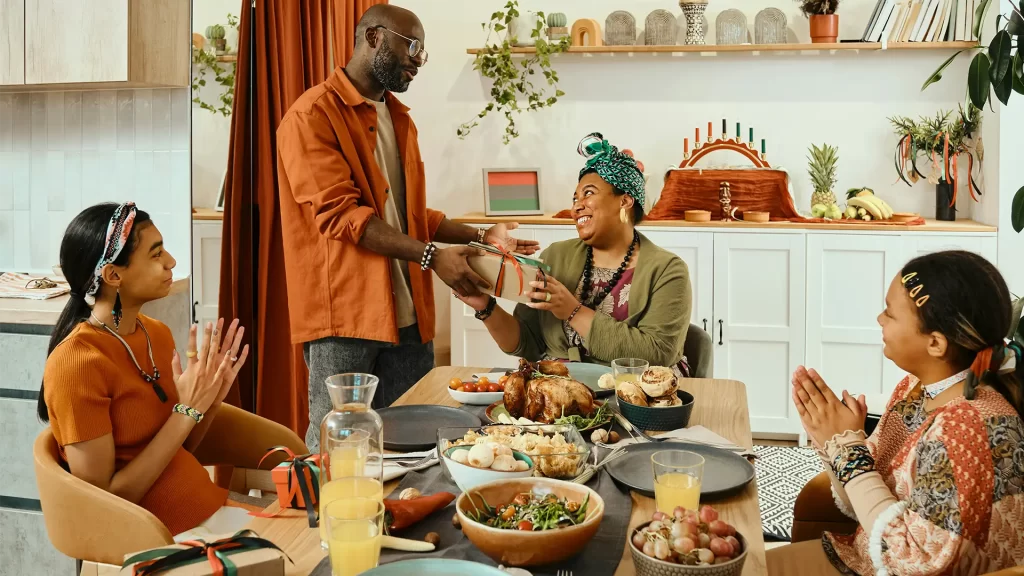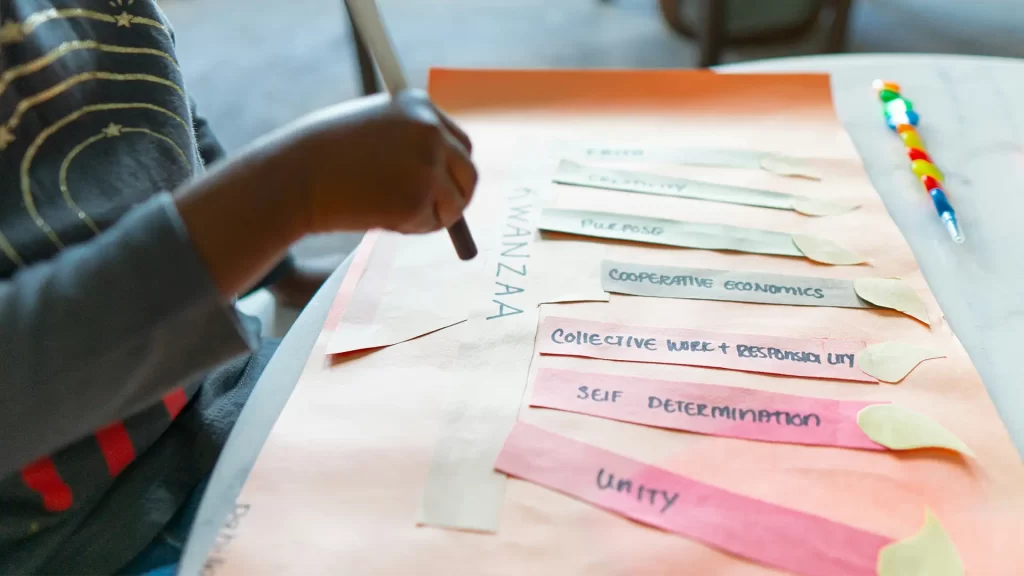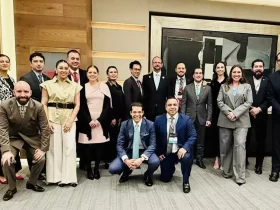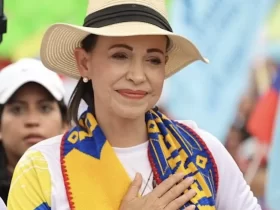I’m sure you’ve heard of Kwanzaa, but have you ever wondered what exactly it’s all about? It’s a celebration full of culture, traditions and a lot of meaning for the African American community. And although it’s not as well known in the Hispanic world, it’s worth learning about.
Kwanzaa is celebrated from December 26th to January 1st and was created in 1966 by Dr. Maulana Karenga, an activist and professor of African studies. Why did he decide to create this holiday? Well, in the 1960s, during the civil rights movement in the United States, Karenga wanted African Americans to have a celebration that honored their African roots and strengthened the community. Thus Kwanzaa was born, inspired by harvest traditions from different African cultures. In fact, the word “Kwanzaa” comes from the Swahili “matunda ya kwanza,” meaning “first fruits.”

Now, how is it celebrated? During the seven days that Kwanzaa lasts, each day is dedicated to one of the principles called Nguzo Saba (in Swahili). These principles are:
- Umoja (Unity)
- Kujichagulia (Self-determination)
- Ujima (Work and collective responsibility)
- Ujamaa (Cooperative economy)
- Nia (Purpose)
- Kuumba (Creativity)
- Imani (Faith)
Each day, families light a candle in a special candelabra called a kinara. There are seven candles in total: three red, three green and one black candle in the center. The black candle represents the African people, the red ones symbolize struggle and the green ones reflect hope and the future.
But Kwanzaa is not just about candles and speeches, it is also a time for gathering, sharing food, stories and music. Many families decorate their homes with vibrant colors, African fabrics and fruits, and organize special dinners where traditional dishes are served. At the end of the celebration, there is a big party called Karamu on December 31, filled with dancing, singing and reflection on the year’s achievements.

The beauty of Kwanzaa is that it does not seek to replace Christmas or other holidays, but to complement the recognition of African culture and heritage. It is a reminder of the importance of community, unity and personal growth.
At La Revista Binacional, we extend our best wishes to everyone celebrating Kwanzaa. May this holiday be an opportunity to strengthen community, celebrate roots and look to the future with hope. Happy Kwanzaa!








































Leave a Reply